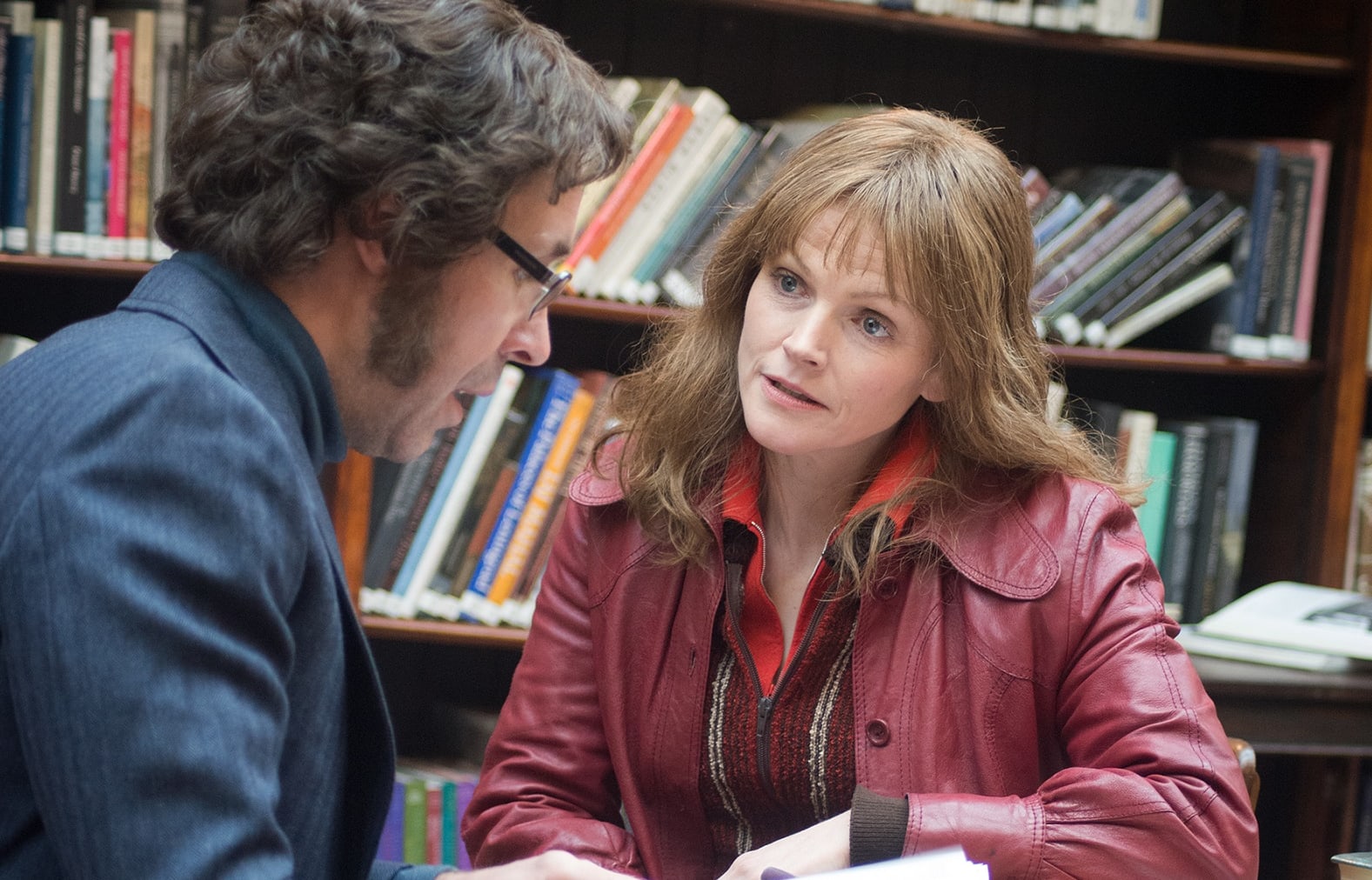Northern English working-class actor Maxine Peake revisits the working men's clubs of her youth in Funny Cow, a story about a female comedian breaking into a scene that didn't yet exist.

Maxine Peake and Paddy Considine in Funny Cow Photo: Kyte Photography
British actress Maxine Peake got her first big break in TV when the late comedian Victoria Wood cast her to play Twinkle in Wood's Dinnerladies in the late 1990s.
Since then Peake's career has taken off. She played Martha Costello in the TV legal series Silk, and professor Stephen Hawking's second wife, Elaine in the film The Theory of Everything.
She has also had a distinguished stage career.
She works regularly at Manchester's Royal Exchange Theatre and has starred as Strindberg's Miss Julie, as Blanche DuBois in Tennessee Williams' A Streetcar Named Desire, and as Hamlet.
Peake was born to working-class parents in Manchester, north-west England. Her parents split when she was nine, and at 15 Peake went to live with her grandfather after her mother moved in with a new partner.
He encouraged her to explore her creativity and was a big political influence. Peake is a socialist and openly endorsed Labour leader Jeremy Corbyn in the last British election.
Funny Cow, her latest film role, follows the rise of a stand-up female comedian in the working men's clubs of northern England in the 1970s - it's a world she knows well.
Peake used to visit the clubs with her father and they were magical places to her.
"They were just where you went and hung out, and they were fun, there was other kids there, there's a disco, there's a bit of an act and you get a bit of food and the adults had a drink.
"I had a slightly romantic view about them as I got older. In Britain now a lot of the working men's clubs have shut down. The one I used to go to with my dad was levelled quite a few years ago and is a supermarket now.
"In a funny way I've romanticised the loss of another element of working class culture."
Funny Cow doesn't flinch from the sexism, homophobia and racism that was a part of that world, she says.
"They were dark, difficult places and I was just fascinated what it must have been like as a woman to struggle up the greasy pole there, and what she must have encountered and have to endure."
England was going into industrial decline in the 1970s and the north was hit particularly hard.
"We had the three-day week and the strikes. It could be a pretty dark and when people get frightened that's when they lash out at groups they see as different.
"Some people would be listening to those jokes and saying 'Oh I'm not racist, it's just funny', of course we would say 'well, you are, they're shocking'.
"It's a complex area, but we didn't want to shy away from it in the film because it was very of its time and I think if you don't remember your past, you don't learn, you don't move forward."
Peake's character is abused both by her father and her husband, but she insists the film is not bleak.
"There's a lot of hope in it, it really is about finding your inner strength I suppose.
"It is about her trajectory through the working men's clubs and becoming successful but that's not what makes her happy really, what the film amounts to is her finding contentment within herself."
Funny Cow opens on Thursday 26 July.

